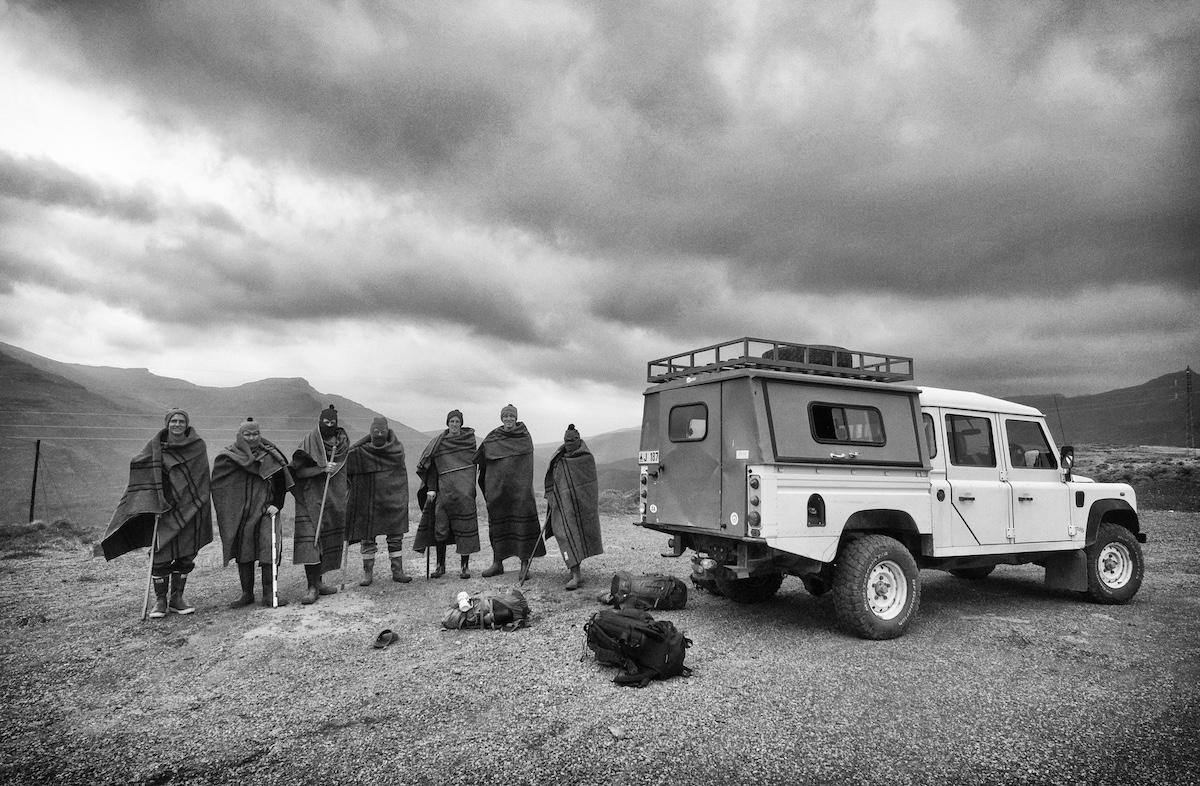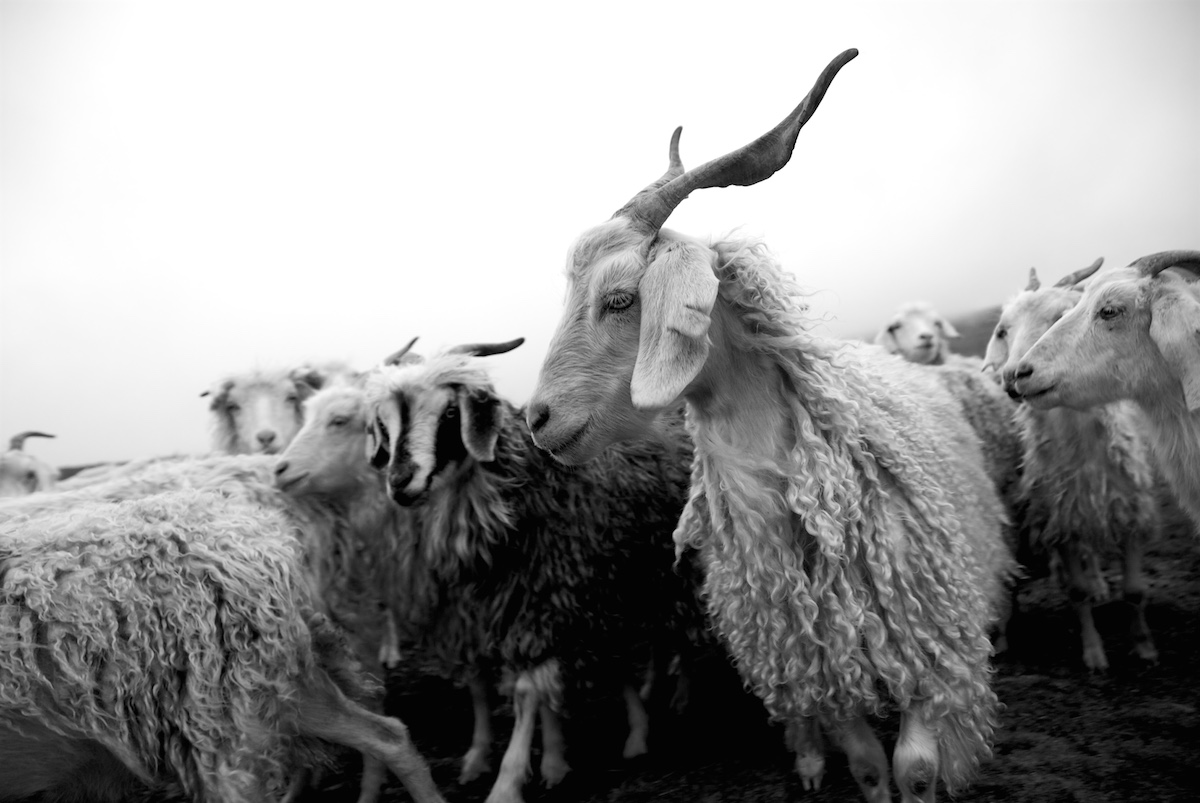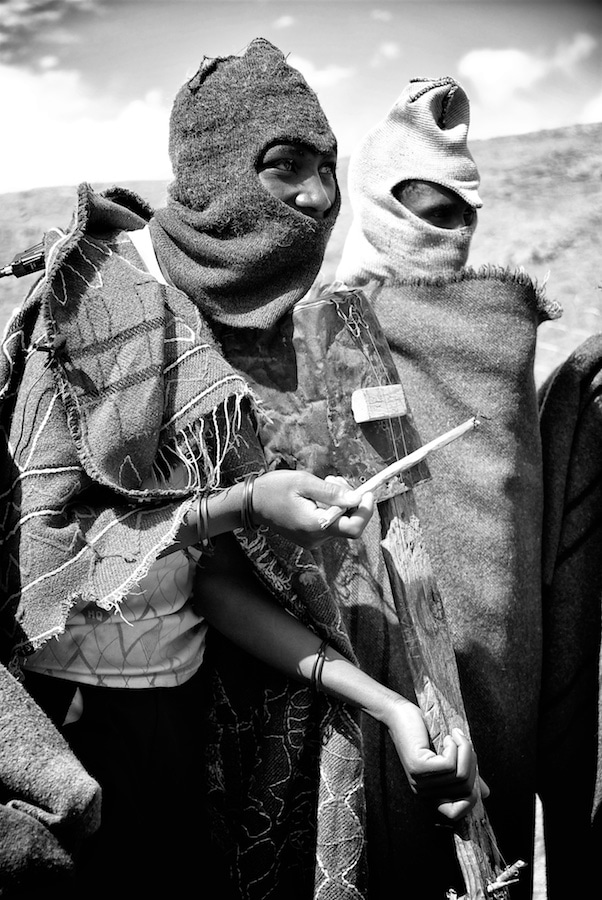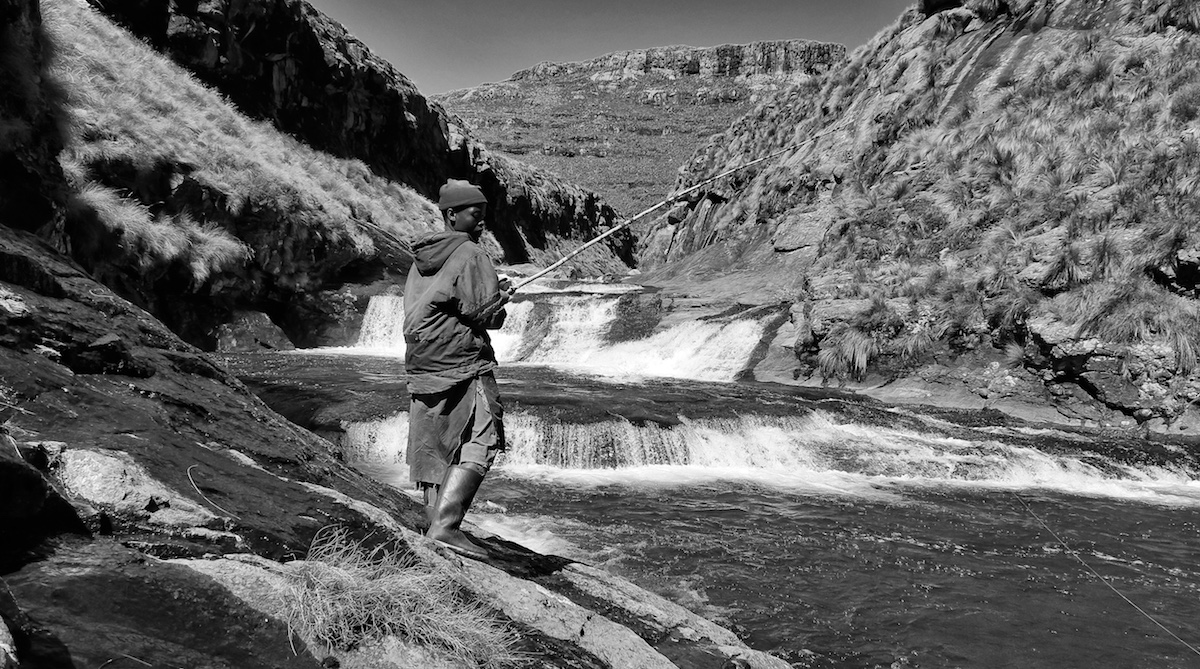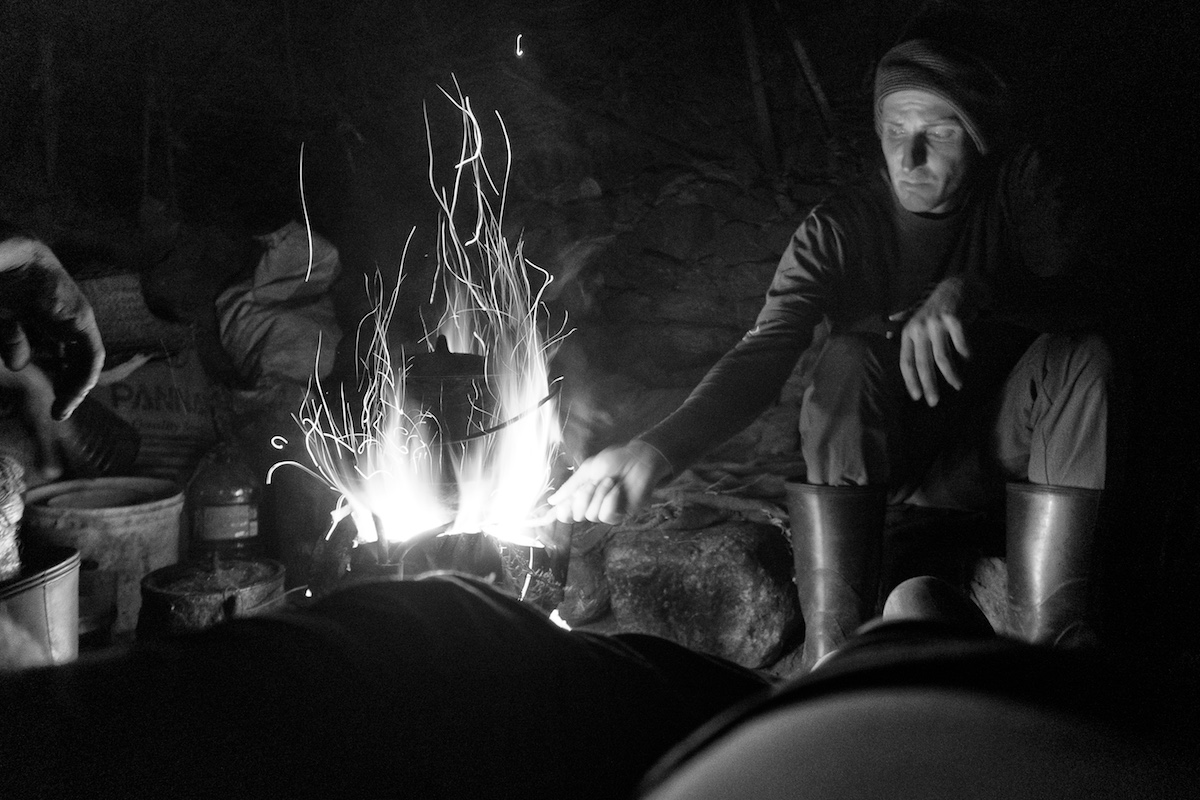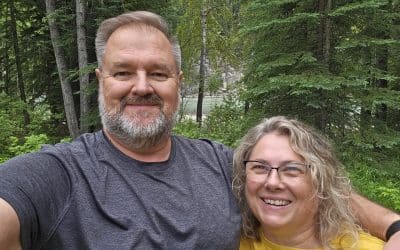Lesotho Highlands
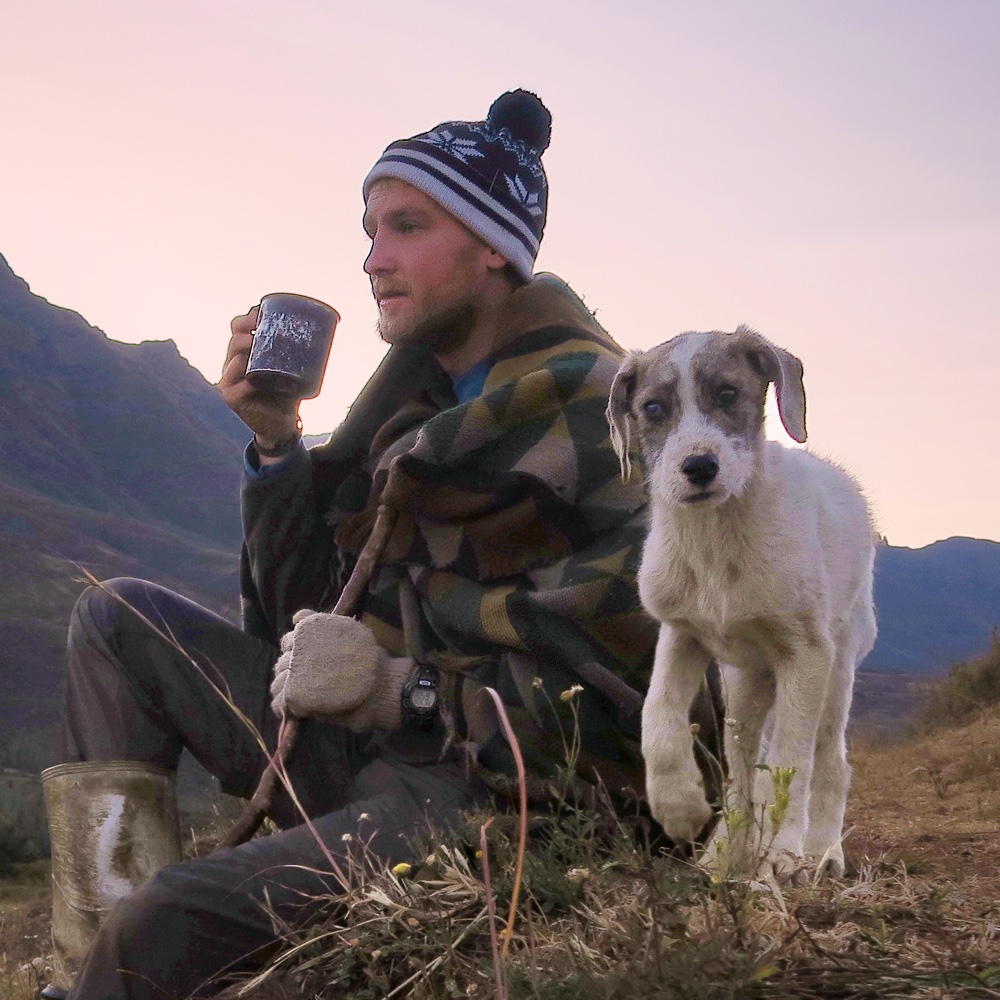
“All in all, I can say with more confidence now than maybe ever before in my life that God is good.”
Meet Mark
Mark is a photographer and graphic artist who made the long and unlikely journey from America’s northwest to the tiny mountain kingdom of Lesotho. He served as part of an Africa Inland Mission (AIM) outreach team who dedicated themselves to sharing the Good News of Jesus Christ with Lesotho’s highland shepherds, a marginalized subculture who spend most of their days tending sheep and goats in Lesotho’s mountains.
A VISUAL JOURNEY
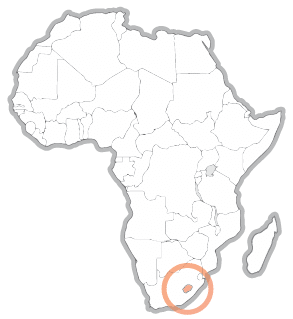
The team lived among the shepherds, learning from them, and helping them with their herds. Here, Mark tends the team’s dinner fire. “Keeping the fire going is constant work,” he says. “It usually involves placing a new piece of firewood on, blowing on it three to five times to light it, and watching it burn up in 20 seconds; then repeating the process for the entire 45-60 minutes until [dinner] is cooked.”
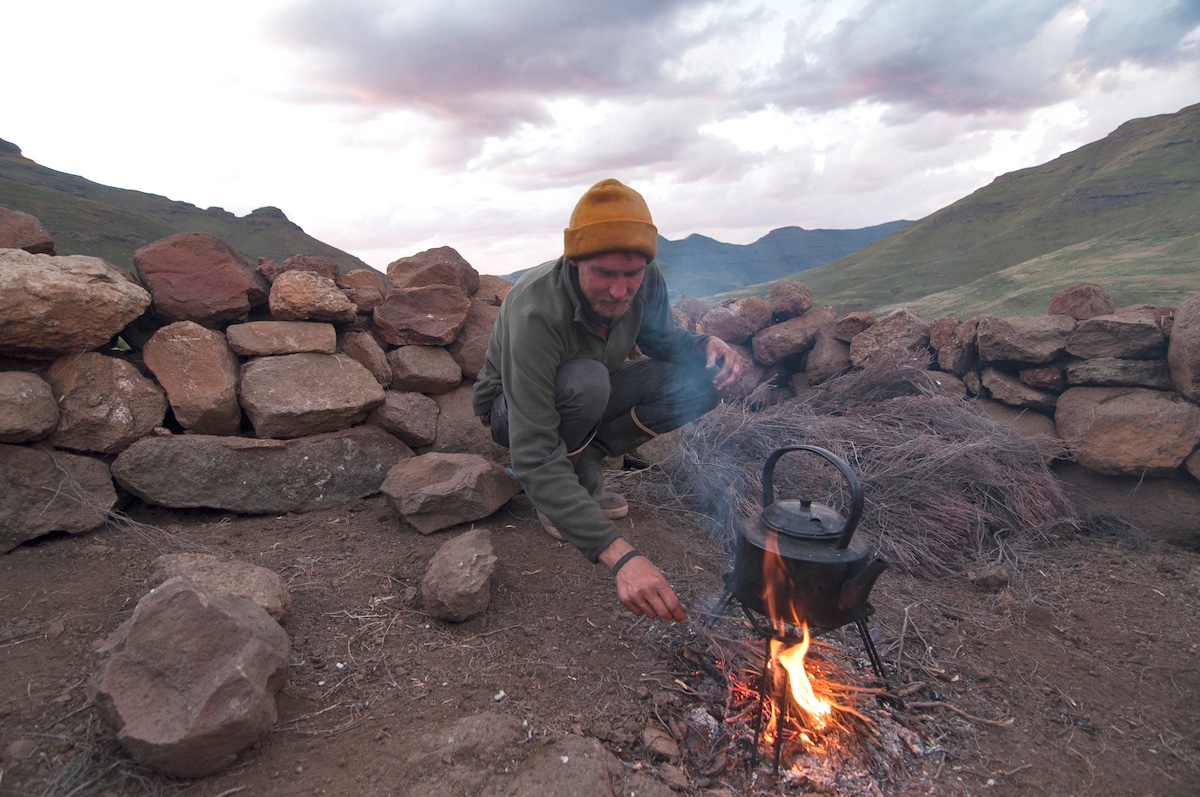
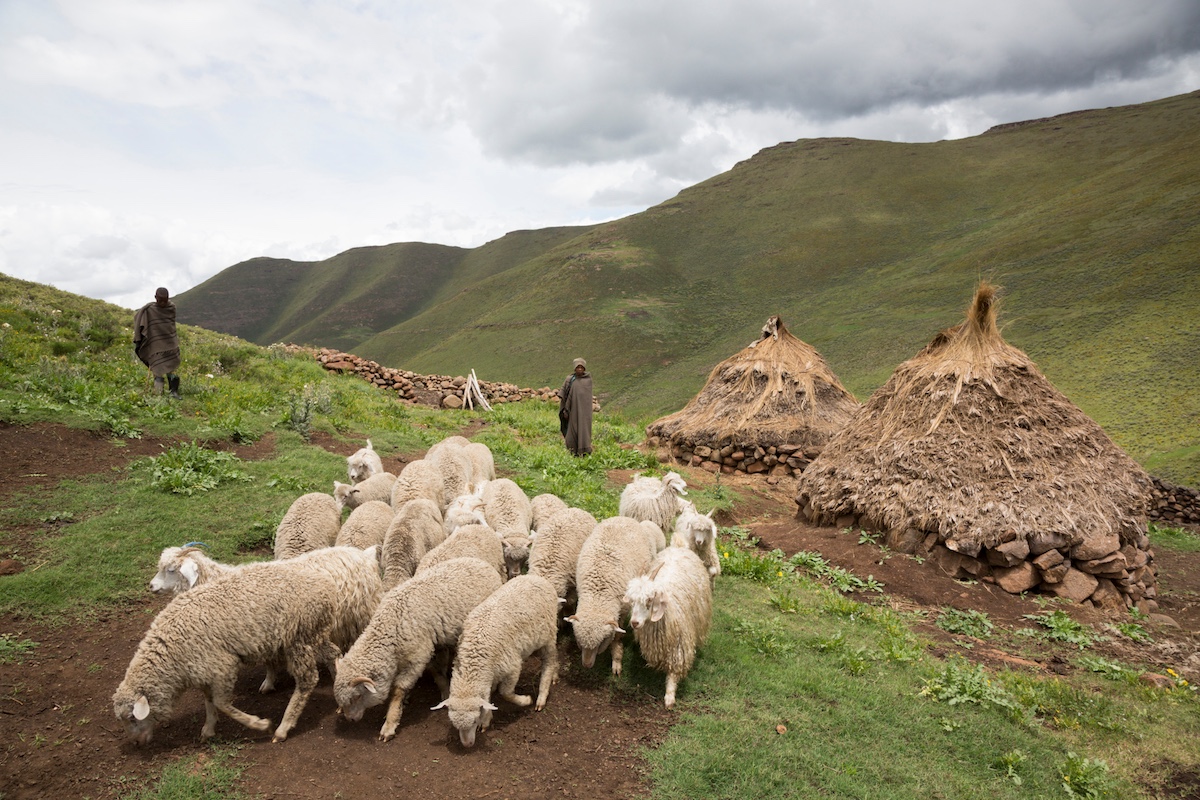
Set Apart
Many shepherds begin their work life as early as five years of age, tending sheep and goats in Lesotho’s rugged mountain highlands. It’s a hard life and a lonely life, spent apart from family and community. Most shepherds never have an opportunity for any kind of formal education and are illiterate.
A shepherd’s annual salary: one sheep, one wool blanket, and a monthly bag of maize meal from which they make a paste called pap, which they – and the outreach team – eat twice a day. “These two meals are usually exactly the same, and sometimes one is the leftovers of the other,” says Mark. “While there is no shortage in quantity, there is absolutely no variety.”
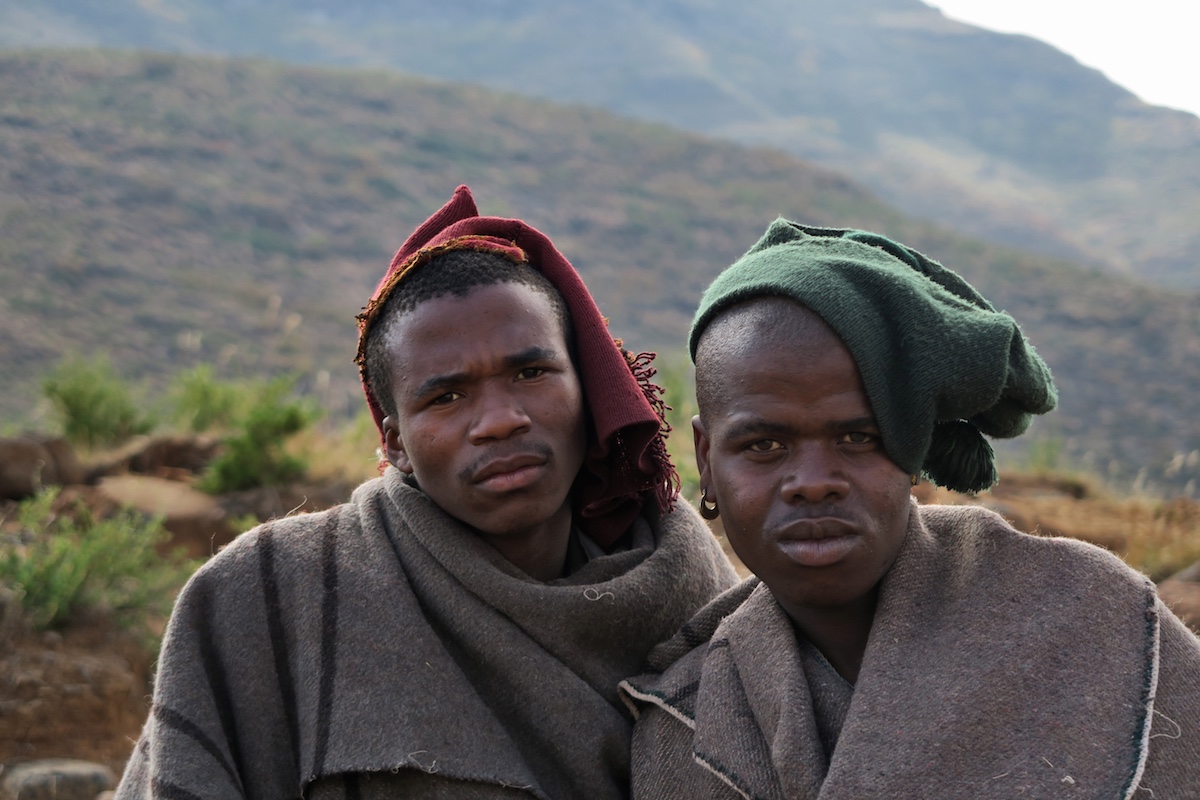
Living as shepherds
Team member Tobias, tending sheep and goats in thick fog that often gathers across the highlands. From the beginning the team set out to serve alongside the shepherds, and to learn language, culture, and shepherding skills from them.
By foot
“Everything in the Lesotho highlands involves a significant amount of walking. Whenever we set out to do something away from our cattle outpost, it means that we need to get up very early at sunup, when the shadows are very long, to make the most of our daylight. To the river: 1.5-2 hours. To the nearest place to buy bread: 2-3 hours. From one team post to the other: 4 hours. To the nearest town (Moteng): 10 hours. To the shearing barn: 12 hours.”
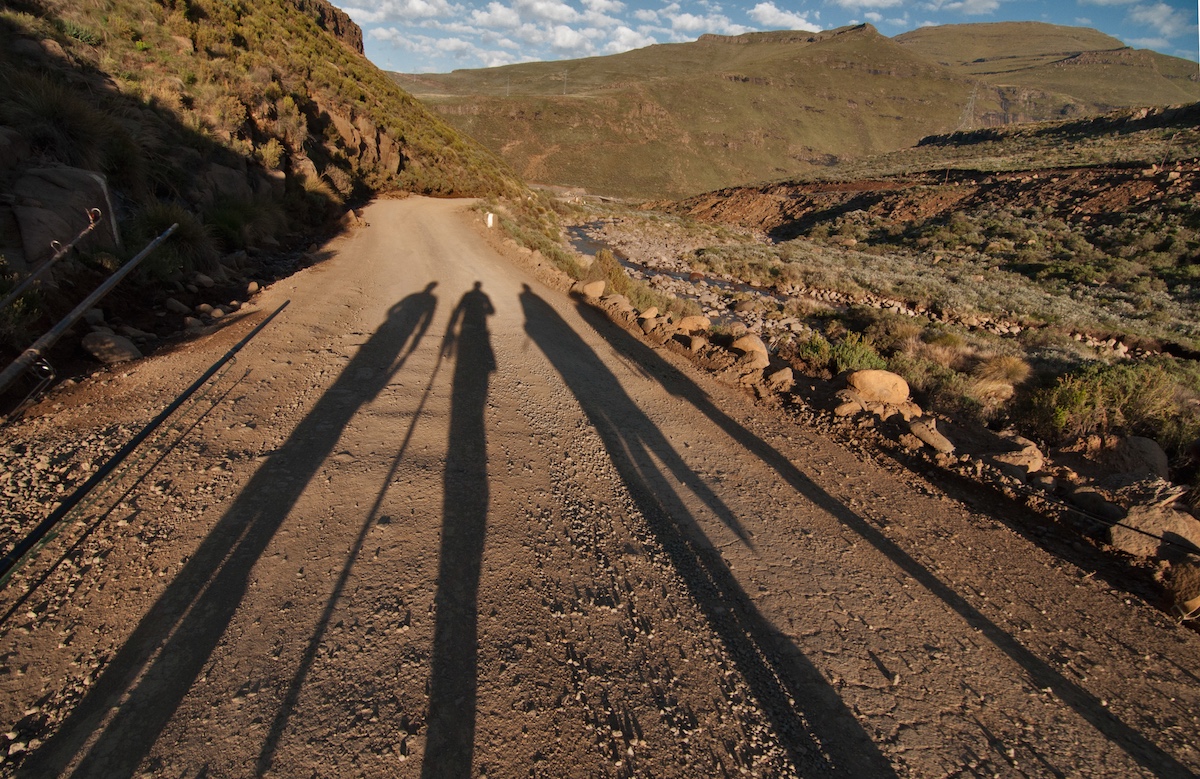
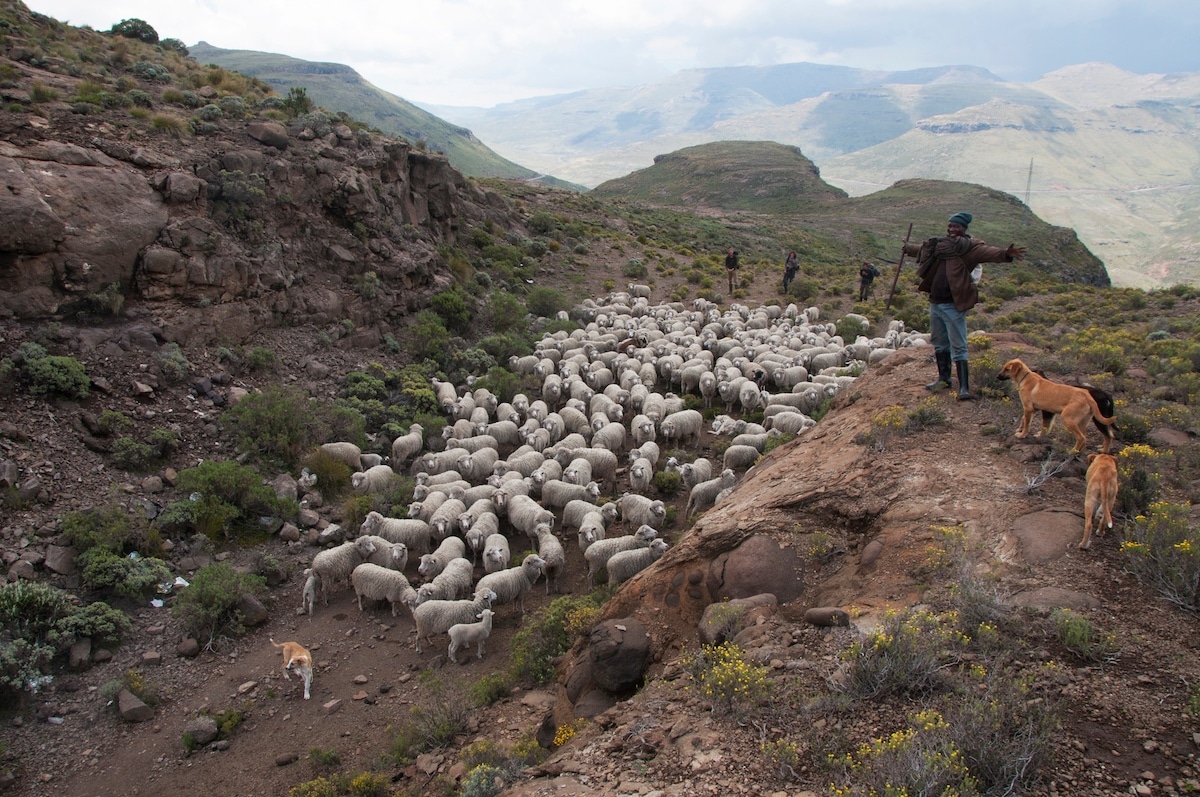
Sweet Victory!
“I am not sure that I can accurately put into words the feeling of crossing a mountain pass from one side to another,” says Mark “Anyone who’s done a decent amount of hiking knows that the work it takes to get to the pass is rewarded 10-fold by the feeling of change in the wind and the view of an entire new landscape on the other side. That feeling was only amplified by the extra work it required to take 248 sheep and goats along on the journey. I was glad to see my shepherd friend, Melofitsani, who grew up just below the pass, shared the same feeling.”
Encounters
“This is Thabo,” writes Mark. (Photo Right) “He said he’s 18, but we’ve learned that ‘18’ is shepherd code for anywhere between 12 and 16. I think he is on the younger end of that spectrum. I met Thabo on a six-hour walk from the nearest town (Motete) to our motebong (stone and thatch hut) at Mahlasela Pass. He was headed to where I had come from, so we had a short conversation in passing. Thabo is unique because of his location, not because of his age. In Lesotho, it seems that the further you get from a town or village, the older the shepherds are. At Mahlasela pass, the average age seems to be in the mid-twenties. To see such a young shepherd with such a nice horse so far away from town was certainly a surprise, and I was glad to have crossed paths with him.”
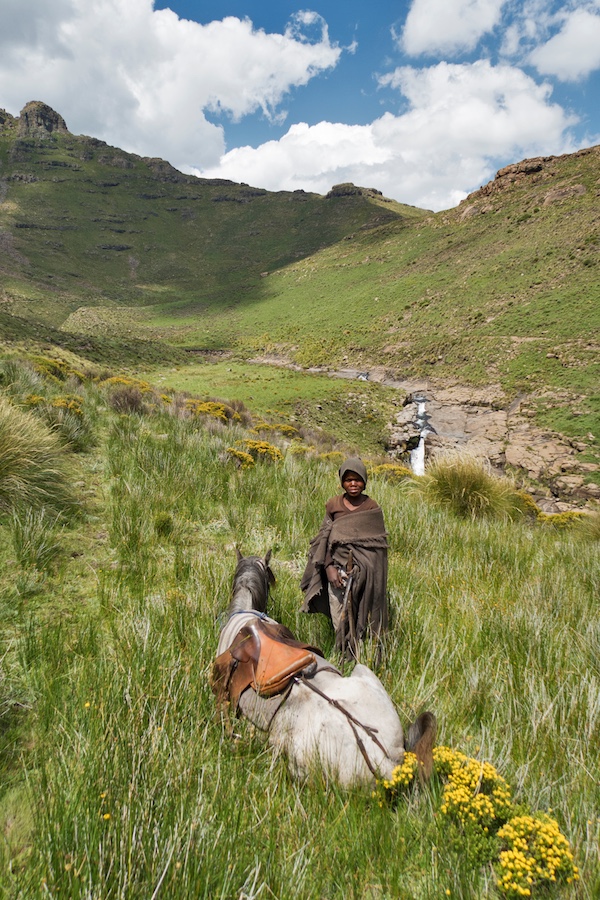
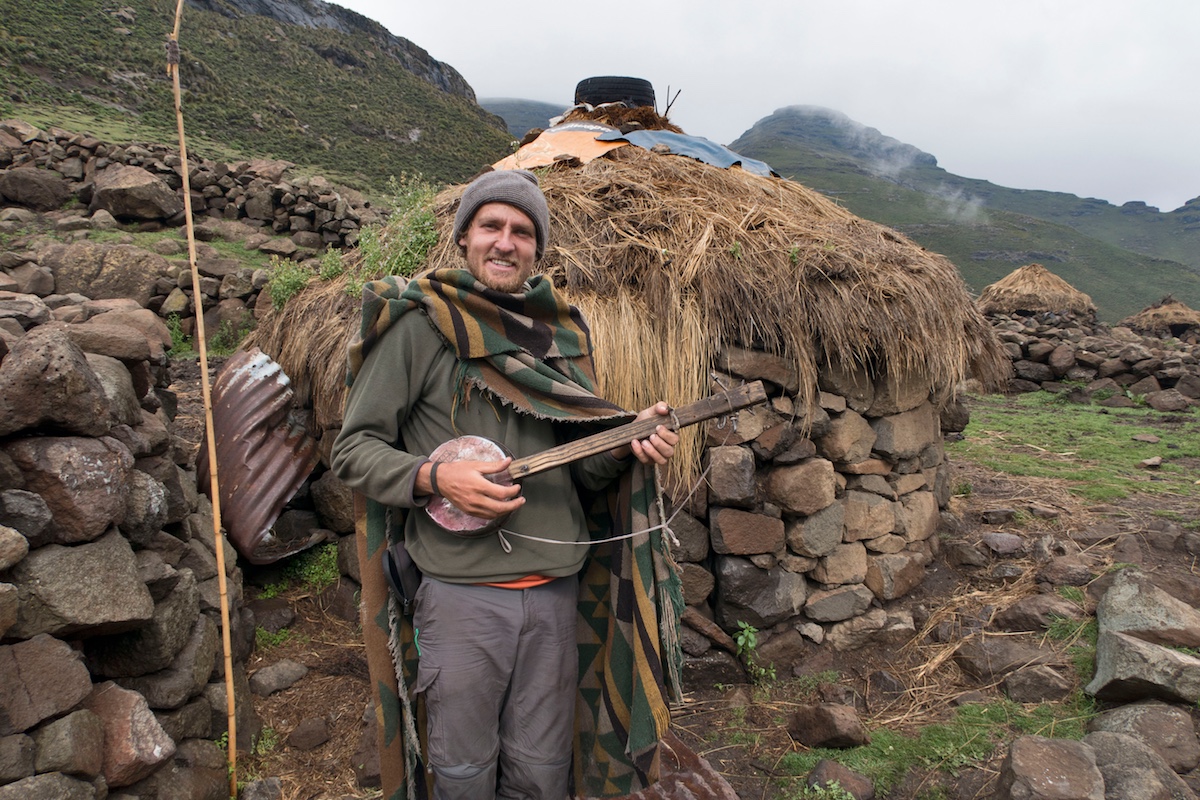
The Hills are Alive
Mark with a traditional highland shepherd three-string. “Sharing music with the shepherds has been a highlight of the ministry here,” says Mark, who plays the mandolin and guitar.
The old old story
Prior to Mark and his teammates’ arrival in Lesotho, Africa Inland Mission personnel worked to develop a series of recorded Bible stories that the team could use to introduce Christ to the shepherds. “The shepherds are excited to listen to them!” says Mark. “When I visited one of the cattle posts, the boys were intently listening to their recorder while preparing breakfast. I hope the words are sinking in!”
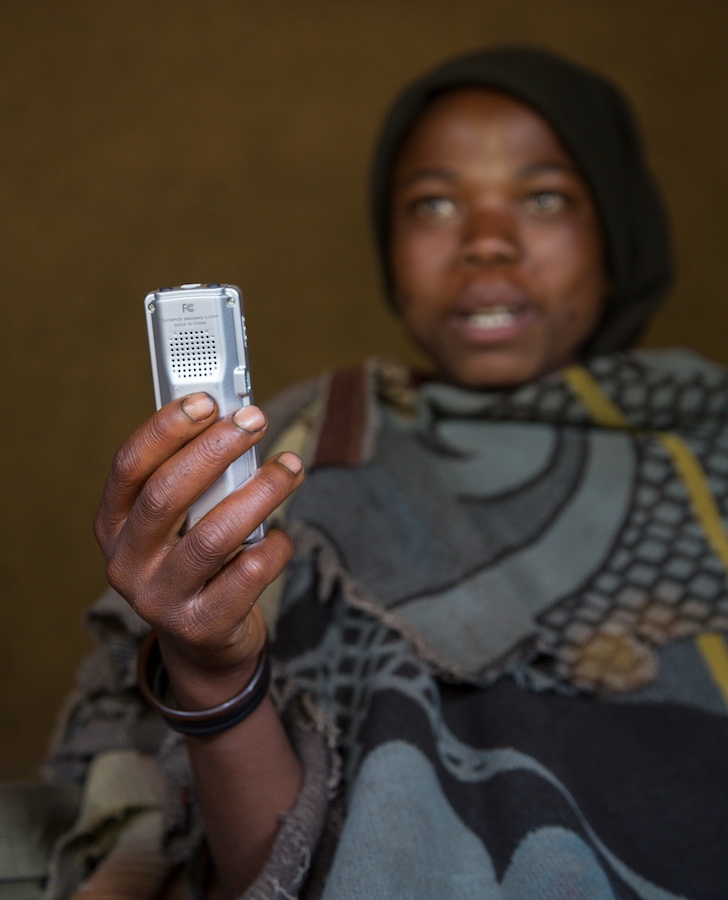
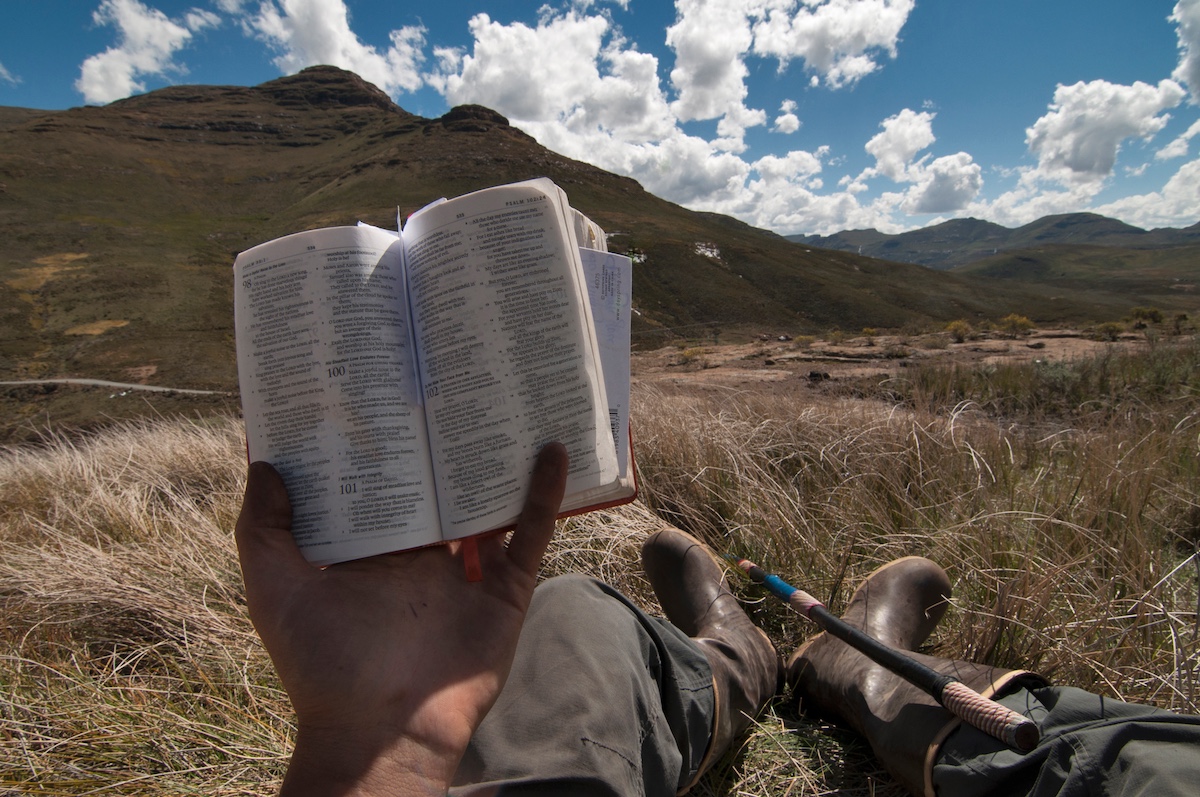
Time with the Shepherd
“Sheep herding in the highlands is a bit like travelling through airports,” says Mark. “You hurry up to get somewhere so that you can wait there for a while. It provides many wonderful opportunities to read and study throughout the day in some stunning settings!”
Fine highland dining
An occasional trout, caught from one of Lesotho’s mountain streams, provides some much-needed protein for Mark and the team, whose daily diet consists of two hearty portions of pap, a maize meal paste, and local herbs. “We all struggled with adjusting to our new diet,” says Mark. “Please pray that the pap and moroho (local herbs) provide the sustenance we need to get through each day.”
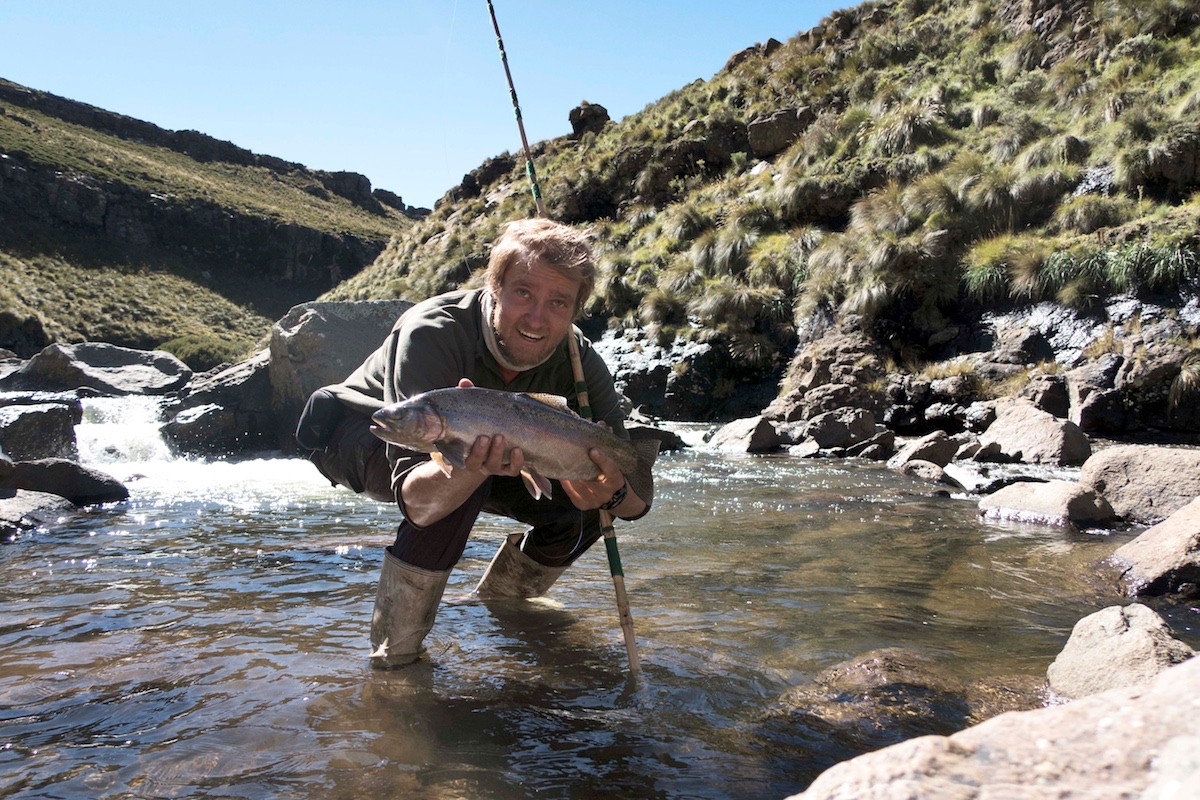
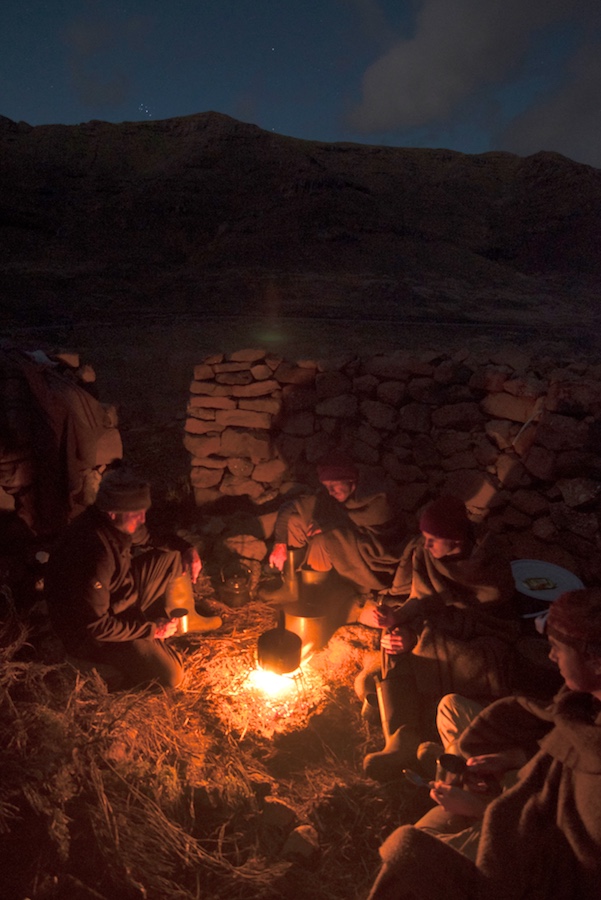
Teamship
“This photo does a great job of expressing what nights are like for us in the highlands,” writes Mark. “Every night, once the sheep have been rounded up and counted, we spend two to three hours together preparing a fire, cooking, eating, and conversing. On cold and rainy nights, we do this in our motebong (hut); but on warmer, clearer nights, we do so outside and often within the walls of an old, roofless motebong. The night sky’s beauty in the highlands is unparalleled. Add wonderful fellowship with Basotho shepherds and co-missionaries, and these nights are truly a highlight.”
Thankful
“All in all, I can say with more confidence now than maybe ever before in my life that God is good,” says Mark. “We have seen His providence over and over, and are thankful for it. In the protein provided from the meat of a trout, once in the gift of potato chips and Coca Cola from a passerby on Thanksgiving, and constantly in the shelter we take made from the surrounding materials in the landscape.
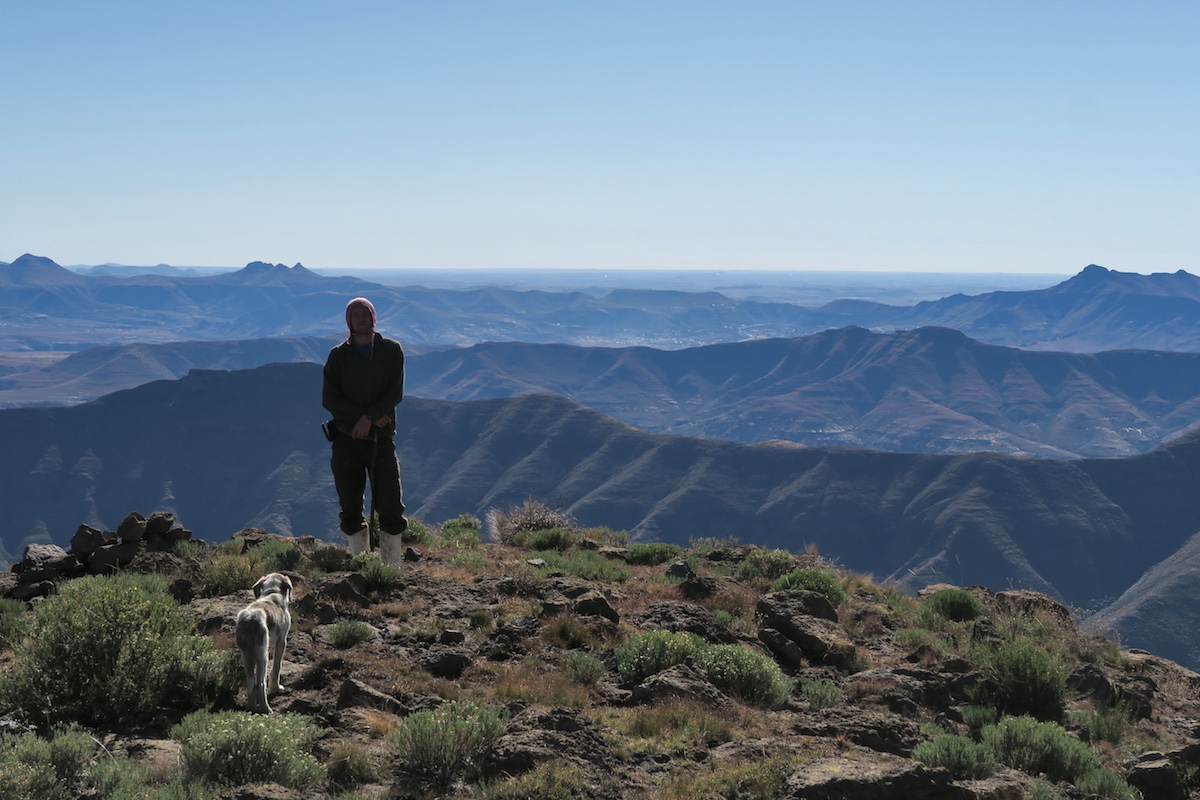
Interested in serving in challenging locations? Browse through the opportunities for serving on our Serve page or sign up for our Explore More email series to learn more.
More Posts
Appointment of Provincial Mobilizers for Alberta AIM Canada
AIM Canada welcomes Dan and Wanda Screpnek to the position of Provincial Mobilizers for Alberta!
Appointment of Office & Communications Manager for AIM Canada
AIM Canada welcomes Ms. Tori Bissell to the position of Office & Communications Manager!
Using what I’ve Got
Africa Inland Mission’s vision to see Christ-centered churches among all African peoples.

